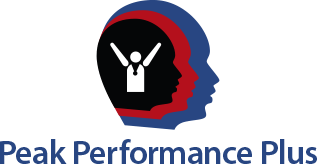According to Medscape, “the consolidation and opportunism” of private equity firms, which have taken advantage of the situation COVID created — smaller hospitals and practices became vulnerable and taken over healthcare thus creating a “new middleman” and raising the cost of healthcare to the beneficiary through increased charges and surprise billing.
Insurance companies, particularly, United Healthcare, came out slugging against the Specialty Healthcare Providers by requiring preauthorization when none is legally required and “scrubbing” diagnostic codes from their “pay list.” Thus, beneficiaries are again victims of surprise billing that demolishes their savings, ruins their credit and puts liens on their estates.
In 2021, several physicians formed Take Medicine Back, an advocacy group focused on wresting control of the profession from corporate interests. Marco Fernandez, MD, president of Midwest Anesthesia Partners in Arlington Heights, Illinois, said he and the over 30 physicians he works with were “blindsided” after losing a couple of contracts to private-equity owned groups. “We were terminated … partly because we refused to adopt a production model!”
Loren Adler, a fellow and associate director at the Brookings Schaeffer Initiative for Health Policy in Washington, D.C., shared key features of the groups private equity tends to target places where quality is harder to measure — for example, nursing homes and behavioral health organizations — or where patients have less choice of provider. Emergency physicians and anesthesiologists fall into the latter category.
Hospice groups are also sought by private equity and for-profit corporations as Eileen Appelbaum, co-director of the Center for Economic and Policy Research in Washington, D.C., pointed out the fact that in a value-based — or more specifically, a capitated payment model — hospice providers get a flat fee in order to tailor patients’ care to their needs. Whatever money is not spent on patient care they keep as a profit.
Using this model, nonprofit hospices provide additional services such as music therapy and after-hours visits. For-profit hospices, in contrast, offer only minimal services and fewer visits.
The net margin for nonprofit hospices was on average 3-4% and no higher than 6%, but among for-profit groups, that figure was closer to 19%, she noted.
Where Are the Watchdogs?
CMS [the Centers for Medicare & Medicaid Services] is a big part of the problem. When inspections of these groups actually occur, it’s easy to find evidence of misbehavior. CMS has, on occasion, suspended enrollment of misbehaving hospices or revoked their certification, but rarely. They have that ability. They almost never use it. CMS has also not done enough to address misconduct in other areas.
The Anti-Trust Division of the Department of Justice has a role to play in preventing certain inappropriate mergers, in part, due to resource constraints, it has not been very aggressive in this area.
Historically, states — through legislation, attorneys general, or state medical boards — instituted bans on the “corporate practice of medicine” (CPOM) decades ago. But a growing number of exemptions and “smart lawyers” have essentially gutted those bans.
There is at this time, advocacy for a bill to return “due process” rights to emergency physicians and other specialties who are terminated. Under Medicare, physicians are entitled to such a right, but third parties are not subject to those requirements. This will at long last bring transparency when legislation is expanded to all physicians thereby affording quality care at affordable costs to the public.
This unique Certified Case Management Assessment and Care Plan program will bring many public, private and insurance resources to the patient and their POAs in real time, in an easily accessible manner reducing the stress of having to navigate the fractured healthcare system as it now exits.
Certified Independent Case Managers are the essential link between the patients, family and care givers to Assess, Plan, Coordinate, Communicate, Advocate, Educate, Maintain standards of health safety on your behalf through Case Management Assessment and Care Planning.

